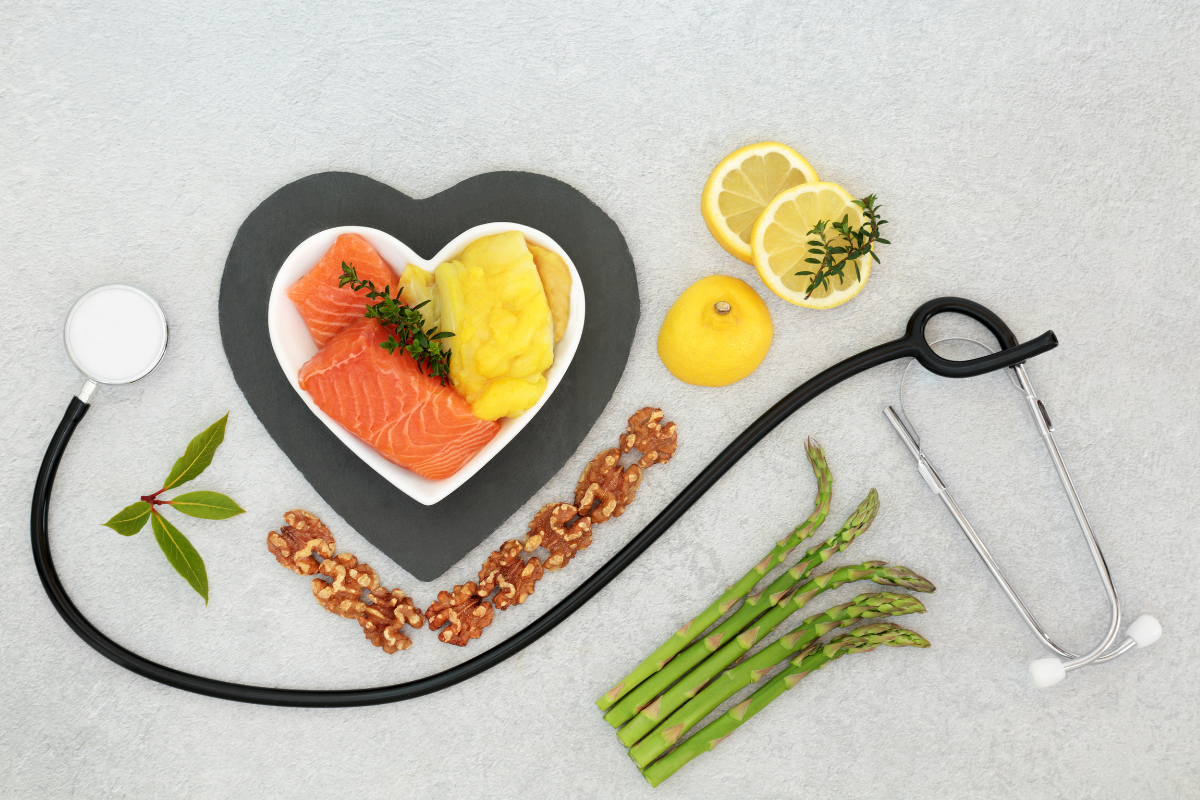What are Cholesterol and Statins, and Why is it Important to Understand Them?
By Vitality Integrative Wellness

We're all familiar with the well-known catchphrase from a beloved and timeless cereal brand: "Cheerios can help lower cholesterol as part of a heart-healthy diet." Now, we know that Cheerios alone can’t lower your cholesterol and keep you healthy, but what exactly is cholesterol, and why is it crucial to maintain optimal levels in our bodies?
Cholesterol is a type of fat that's essential for various bodily functions. It plays a vital role in forming cell membranes, producing hormones like estrogen and testosterone, and aiding in the synthesis of vitamin D. While cholesterol is necessary for overall health, an imbalance in its levels can lead to health issues, including cardiovascular problems.
One common misconception is that all cholesterol is harmful. In reality, there are different types of cholesterol: LDL (low-density lipoprotein) and HDL (high-density lipoprotein). HDL is often termed "good" cholesterol as it helps remove excess cholesterol from the bloodstream. LDL, on the other hand, is often referred to as "bad" cholesterol because high levels can contribute to plaque buildup in arteries. LDL is the cholesterol we want to keep an eye on.
There are statin medications that can be prescribed to patients with elevated levels of LDL cholesterol. These medications work by inhibiting an enzyme in the liver involved in cholesterol production. Statins are commonly prescribed to lower the risk of heart disease and stroke. However, they primarily focus on reducing cholesterol levels without addressing the underlying factors contributing to high cholesterol, such as dietary habits and hormonal imbalances.
Statin medications have become a common solution due to their potential to lower LDL cholesterol levels. However, they are not without limitations and potential side effects, which we will explore further, as well as alternative methods for addressing high cholesterol.
The Functional Medicine Perspective on Cholesterol and Hormone Imbalance:
The functional medicine perspective offers a unique insight into the role of cholesterol that goes beyond its association with heart health. Cholesterol, often viewed solely through the lens of cardiovascular health, is in fact, a critical player in a complex web of hormonal pathways that influence various bodily functions. Understanding this perspective sheds light on how hormone imbalances can contribute to high cholesterol and its associated health challenges.
Imagine your body as a finely tuned orchestra, with hormones as the musicians and cholesterol as the conductor. Cholesterol acts as a foundational building block for many hormones, including sex hormones like estrogen, testosterone, and progesterone, as well as adrenal hormones like cortisol. These hormones play pivotal roles in:
- Regulating metabolism
- Reproductive health
- Stress response
- Mood
When the hormonal orchestra falls out of tune due to imbalance—such as elevated cortisol from chronic stress or disrupted sex hormone levels—cholesterol can be affected. For instance, when stress triggers an overproduction of cortisol, the body might respond by producing more cholesterol to meet the demands of hormone synthesis. This excess cholesterol can then contribute to elevated LDL (low-density lipoprotein) cholesterol levels, the so-called "bad" cholesterol.
Chain Reaction of Hormonal Imbalances
Hormonal imbalances can set off a chain reaction. An overabundance of estrogen, often seen in conditions like polycystic ovary syndrome (PCOS), can lead to insulin resistance and weight gain. This, in turn, can contribute to increased LDL cholesterol levels.
In essence, addressing hormonal imbalances is like tuning the instruments in the orchestra. By promoting hormonal harmony, you can positively influence cholesterol levels. Functional medicine practitioners understand that achieving optimal cholesterol levels isn't just about reducing dietary intake; it involves creating an environment where hormones are in equilibrium.
By focusing on hormone balance through personalized approaches—such as stress reduction techniques, targeted dietary adjustments, and lifestyle modifications—functional medicine aims to not only manage cholesterol levels but also enhance overall well-being. This comprehensive understanding of cholesterol's role as a conductor in the symphony of hormones empowers individuals to take a holistic approach to their health, targeting both the root causes of imbalances and the resulting impact on cholesterol levels.
Limitations and Potential Side Effects of Statin Medications:
While statin medications are commonly prescribed to lower cholesterol levels, it's important to recognize their limitations and potential drawbacks. The Mayo Clinic has laid out the risks of taking statin medications in detail. These limitations stem from the fact that statins primarily address symptoms rather than tackling the underlying causes of elevated cholesterol. Let's explore these limitations in more detail:
- Addressing Symptoms, Not Causes:
Statin medications can lower LDL cholesterol levels, but they do so without directly addressing the root causes of high cholesterol. They do not target the factors that lead to cholesterol imbalances, such as poor dietary habits, a sedentary lifestyle, or hormonal imbalances.
- Financial Costs:
For some, the financial burden of statin medications can be significant, especially for long-term use. Regular prescription refills and healthcare visits for monitoring can add up over time. This cost can be a concern for individuals who require ongoing cholesterol management.
- Potential Side Effects:
Statin medications are associated with various potential side effects, some of which can be serious. These side effects may outweigh the benefits for some individuals. Here are some noteworthy considerations:

- Liver Damage: Statins can occasionally lead to liver enzyme abnormalities, which, in rare cases, may result in liver damage. Regular liver function tests are recommended when taking statins to monitor for this potential risk.
- Muscle Weakness and Pain: Statin use has been linked to muscle-related side effects, including muscle pain, weakness, and in severe cases, a condition called rhabdomyolysis. This condition involves the breakdown of muscle tissue and can lead to kidney damage.
- Cognitive Issues: Some individuals report cognitive side effects such as memory loss, confusion, and difficulty concentrating while taking statins. While the association is still debated, it's important to consider these potential effects.
Natural Approaches to Managing Cholesterol Levels
Taking a holistic approach to managing cholesterol involves making lifestyle changes that promote overall health and well-being. Here are various natural approaches supported by functional medicine principles:
- Dietary Modifications:
A balanced diet plays a pivotal role in cholesterol management. It is crucial to limit the amount of processed foods that are heavy in unhealthy saturated fats, and in turn, consume more whole foods, especially those rich in soluble fiber. Soluble fiber binds to cholesterol in the digestive tract, helping to eliminate it from the body. Some soluble fiber food to incorporate into your diet:
- Oats
- Beans
- Lentils
- Fruits
- Vegetables
- Healthy Fats:
There are unhealthy saturated fats and heart-healthy unsaturated fats. Some studies show that consuming healthy fats can help reduce LDL levels while not affecting and can raise HDL levels. Some sources of healthy fats such as avocados, nuts, seeds, and fatty fish.
- Exercise:
Regular physical activity positively impacts cholesterol levels. Exercise can raise HDL (good) cholesterol levels while promoting weight management. Engaging in aerobic activities, strength training, and flexibility exercises can be an effective long-term solution to maintaining your LDL levels.
- Stress Reduction:
Chronic stress can contribute to hormone imbalances and impact cholesterol levels. Introduce stress reduction techniques like meditation, deep breathing, yoga, and mindfulness. By incorporating these practices you can lower your cortisol levels and promote hormonal harmony.
- Targeted Supplementation and Hormone Balancing:
Functional medicine recognizes that every person's health is distinct, and this understanding leads to a tailored approach known as targeted supplementation. This approach involves selecting supplements based on an individual's specific health profile, addressing their unique requirements and challenges.
Targeted supplementation fills in the missing pieces, helping to create a complete and balanced picture of health. For instance, individuals taking statins might experience side effects such as muscle weakness and memory impairment. Functional medicine practitioners might recommend coenzyme Q10 (CoQ10), a nutrient that can be depleted by taking prescription statin medications. Dietary supplementation not only counters these potential side effects but also supports heart health and brain function.
Another example is magnesium—a mineral that plays a crucial role in various bodily functions. In the context of muscle function, magnesium can be instrumental in preventing muscle cramps and promoting relaxation. If a person's health profile indicates magnesium deficiency or muscle-related issues, functional medicine might suggest magnesium supplementation to address these concerns.
By recognizing that health is as unique as the individual, functional medicine brings forth targeted supplementation as a powerful tool. It's not just about filling gaps—it's about optimizing health, promoting balance, and enhancing well-being on an individualized level.
- Specific Natural Remedies:
- Red Yeast Rice: Red Yeast Rice can be effective in naturally reducing LDL cholesterol levels. Made from fermented white rice the natural fermentation can enrich the rice with substances that are structurally identical to statin drugs. Red Yeast Rice is commonly used in traditional Chinese medicine and is available as an over-the-counter supplement.
Plant Sterols: Plant sterols are compounds found in certain foods that resemble cholesterol structurally. They can help block cholesterol absorption in the digestive tract, leading to lower LDL cholesterol levels. Plant sterols can be found in foods like nuts and seeds.
- Omega-3 Fatty Acids: Omega-3 fatty acids, found in fatty fish like salmon and in supplements, have been shown to have various heart-healthy benefits, including reducing triglyceride levels and inflammation.
- Probiotics: Probiotics have been on the rise recently in that more and more people are understanding the benefits of consuming probiotics. Some studies suggest that certain strains of probiotics may help lower LDL cholesterol and total cholesterol levels.
By combining dietary changes, exercise, stress management, and targeted supplementation, individuals can adopt a comprehensive approach to managing cholesterol levels that aligns with functional medicine principles.
Conclusion
Natural and functional medicine are the long-term approaches to managing cholesterol levels and addressing the root of the problem. At Vitality Integrative Wellness, we can help work with you to take the steps toward holistic and effective methods to address high LDL cholesterol levels. The significance of seeking guidance from a functional medicine practitioner cannot be overstated, as they offer personalized advice tailored to individual health requirements. Schedule a consultation today and take the steps to live your best life!



